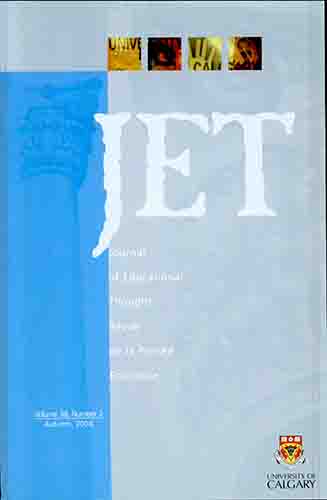The Fallacies of Jerome Bruner's Hypothesis in 'The Process of Education:' A Deweyan Perspective
DOI :
https://doi.org/10.55016/ojs/jet.v38i2.52645Résumé
This article attempts to expose the fallacies of Jerome
Bruner's curricular hypothesis in The Process of Education through
invoking the ideas of John Dewey, and in so doing, questions the
uncritical acceptance of Bruner's doctrines by today educators. It
examines the underlying assumptions in the hypothesis, focusing
on the untenable dualisms between the logical and the
psychological, subject matter and method. The central thesis is that
the organization and formulation of the subject matter of the school
curriculum involves essential psychological and epistemological
issues whose neglect and denial would lead to confusion in theories
of curriculum and instruction. This thesis carries significant
implications for the making of the school curriculum.
Téléchargements
Publié
Numéro
Rubrique
Licence
The Journal of Educational Thought retains first publication rights for all articles. The Journal grants reproduction rights for noncommercial educational purposes with the provision that full acknowledgement of the work’s source be noted on each copy. The Journal will redirect to the appropriate authors any inquiries for further commercial publication of individual articles. All authors wishing to publish in JET will be asked to fill in and sign a Consent to Publish and Transfer of Copyright agreement.
Authors must affirm that any submission to JET has not been and will not be published or submitted elsewhere while under considration by JET.

